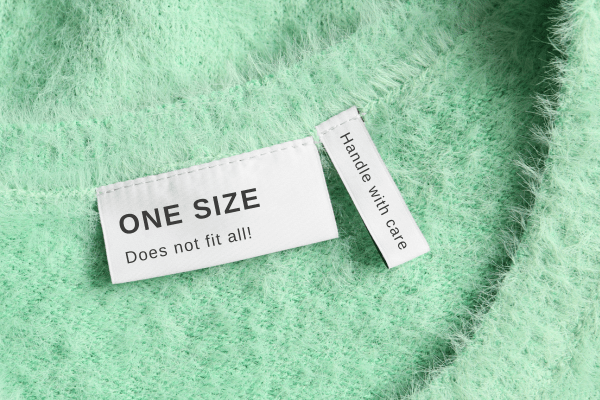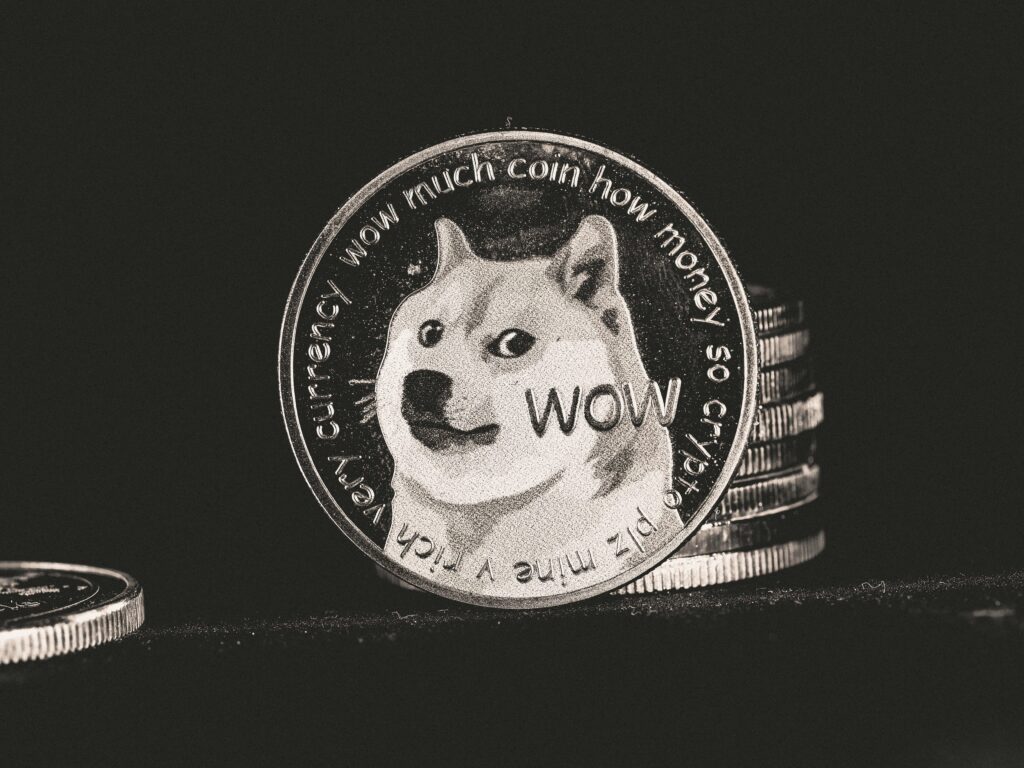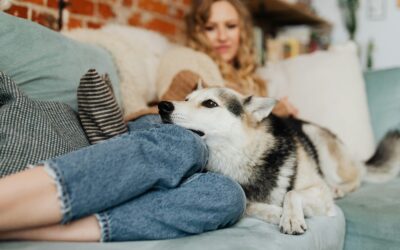There is so much generic advice out there on the internet about separation anxiety and how to work on it, and it can’t be THAT hard to teach your dog that its safe being home alone, right? Is it worth working with a separation anxiety specialist versus going it alone?
Well lets start with the fact that separation related behaviours are what is often classed as a behavioural emergency. It is a phobia. Your dog is experiencing very real panic and fear when left alone. Now lets spin this round for a second – if YOU were feeling that anxious about life, were having panic attacks and physiological responses at certain aspects of your life, would you rely on Dr Google for help, or would you go to a qualified professional who can actually help (a doctor, a therapist/psychologist)? I am confident, and sincerely hope, that you would choose option b! Because it is your emotional and mental health on the line, which in turn WILL impact your physical health.
Some advice on the internet is good and some is awful, but what all the advice shares is that it is not individualised and personalised for YOUR dog, and that is SO important.
Personalisation is key

I have recently (for a week) been working with a great online coach to help me lose the weight I put on in 2024 following my house fire. Now I have tried to do it myself for a few months. In December I told myself that when I am back in my house in January, I will get started on counting calories and eating better and swimming more. I DO have health considerations (I have pretty bad knees which can flare up if I do too much, or the wrong kind of exercise, I have a dodgy back, and a condition which means I experience fatigue), but I know that should not hold me back and I dont have to over exercise. I was motivated to get started in January.
So I got started, or tried, and while I felt I essentially knew what to do (how hard can it be, right?) I was getting nowhere. I was starting every day feeling motivated, and tracking what I was eating, but then by the afternoon I was feeling hungry, or even if I wasnt feeling hungry I fell off the wagon and was snacking and eating far too much chocolate. March came around and I thought enough is enough…..I had spent 2.5 months achieving absolutely nothing. Someone I know had recently lost a great deal of weight with this particular coach, and I had followed them for a while, so I signed up with them.
Its been 1 week and I have lost 3kg! I am eating better, have more of an idea of what to eat, and the accountability for me helps hugely. Also, in comparison to a coach I worked with in 2023 (for only a few months) when I initially lost the weight this one is infinitely better. Why? Because it is much more personalised, the coach went into great detail not just about my eating habits and where I want to get to but about ME – my medical issues, what they are, what I can and cannot do physically, stress levels, daily routine etc. Everything. It is absolutely personalised to me, not just telling me how many calories to eat and steps to do.
This is exactly comparable to working with a specialist in separation anxiety. Personalisation is one of the KEY components of a separation anxiety protocol! Protocols I write for clients take into account their home layout, the layout of the environment outside the home, criteria that impacts how well a dog is able to cope with absences, how the dog did the day before. There is NO “one size fits all” approach!
Do you REALLY know what to do?
Potentially you may you feel you know what you should do, but do you? Do you know how to assess your dog so you know where to actually start? Do you know how to build up duration without always making it harder? Do you know when to lower duration and when to increase? Do you know your dog’s more subtle body language signs that indicate they are uncomfortable – not just the obvious ones? Do you know how to keep a track of all variables as you go along to see how they impact your dog, and then what to do if there is a pattern? How do you deal with set backs? Do you know that pain impacts behaviour hugely and that dogs dont show pain how we would expect, and do you know how to assess those subtle signs of discomfort (most people do not notice them but I do!).

Or are you just leaving the house each day, watching your dog with no plan, and coming back at random times or when they start to get anxious? If so, this is not going to elicit results Im afraid. And this was me until a week ago – trudging on with the same patterns, getting nowhere.
It is so important to not just look at the separation anxiety in isolation., Behaviour never happens in isolation. Thats why I look at every single area of yours and your dogs life, and assess your dog’s posture, gait and how they navigate daily activities to see if there is any sign of discomfort that could be impacting their behaviour.
What was holding me back?
Invest in what will improve your life
Honestly – a big factor was money! That and the fact that I SHOULD be able to do this myself. But then I thought, why should I be able to? Losing weight and strengthening is hard! As is working on separation anxiety. And as for the money, I suddenly decided that if investing in myself, my health and my confidence isnt worth it, then what is!

Specialists in any field are there for a reason, to help you with the specific area that is their specialism. Yes it costs money, but isnt it worth it rather than wasting months trawling the internet and getting advice from social media of people who, with respect, are not knowledgable or qualified in that area! Would you get advice on Facebook if you were had tooth pain rather than going to the dentist? I sincerely hope not!
Also, something that people often dont realise, is that if youre insurance policy covers behaviour concerns, you will be able to claim my fees back
The power of accountability
For me, having someone set me calories to eat, low level workouts to do, give me ideas of meal plans and also keep an eye on what I am eating etc on a daily basis helps hugely. The accountability is so important, and I know this personally but also because I have lost track of the numbers of clients who have told me that it helps them. Because losing weight and getting fit is HARD and takes time….as is working through separation anxiety. There are no quick fixes for either, they both take time, and with both it can be very easy to throw in the towel if things arent going to plan.
But let me tell you this – things will NEVER go in a linear fashion – not with a separation anxiety programme, and not with weight loss. When working through a separation anxiety programme, you will have highs and lows, peaks and troughs, but that is the journey. Dont underestimate the value of having someone there telling you this is normal, telling you what to do next and motivating you to continue.
Remember – you have one dog (maybe more but lets say one!) and this is your exposure to separation related behaviours…..I have worked with hundreds of dogs with anxiety about being alone!
So….to wrap up….if youre trying to work out whether its worth investing in employing a separation anxiety specialist, I hope this has helped you in some way. Yes everyone works differently – as an example I like to do live reassessments with my clients each week so I get to chat with them and assess the dog with my own eyes each week (this for me is the most important part) whilst others assess videos – but check out the specialist youre interested in, ask questions, see if they feel a good fit and then go for it – dont look back! I am not saying its easy to work through because its not – its emotionally exhausting and can be a long, long road, but its always going to be easier with someone taking the reins who knows what theyre doing!
Angela Doyle
Polite Paws 2025
If you would like help with working through your dog’s separation anxiety please complete the form on the page below and I will be in touch to arrange a free initial phone call:
Remote Online Separation Anxiety Dog Training (politepawsdogtraining.co.uk)




